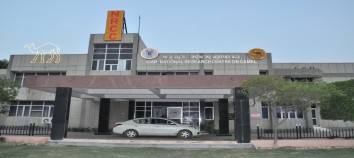Thrust Area
- Genetic improvement of indigenous camels through conventional and molecular means
- Selection for faster growth and early maturity
- Selection for development of camel as a dairy animal
- Improvement of reproductive efficiency in camel
- Development of artificial insemination in camel
- Camel genome analysis for its diverse biological uses
- Management of camel diseases through surveillance, monitoring and prophylactic and control measures
- Development of diagnostics against camel diseases
- Camel calf mortelity - etiology and protective measures
- Pharmacokinetic and drug metabolism in camels
- Value addition and evaluation of camel milk for its therapeutic values and exploitation as functional food
- Molecular classification of camel milk casein and lactoferrin
- Adaptation of camel to climatic changes- research on stress physiology
- Exploring camel immunoglobulines for in vivo diagnostics / therapy
- Development of low cost ration for camel
- Rumen kinetics
- Assessment of draftability of camel energy, budgeting and its utilization
- Socio-economic and cultural aspects related to camel husbandry
- Establishment of international centre of documentation on camel research and information
- Promotion of camel in eco-tourism
- Linkages with interdisciplinary centres of excellence in India and abroad
- Rangeland management
- Human resource development
INFRASTRUCTURE
The infrastructure facilities at Centre include administrative cum library building, well equipped research laboratories of Physiology, Reproduction, Biochemistry, Breeding and Genetics, Health, Production and Management and Nutrition with small animal experimental house, Agriculture Research Information System (ARIS), camel herd of about 350 camels, agro forestry rangeland of about 659 acres, residential complex, guest house, community centre, conference hall, committee room, camel dispensary, camel museum and camel milk parlour.

